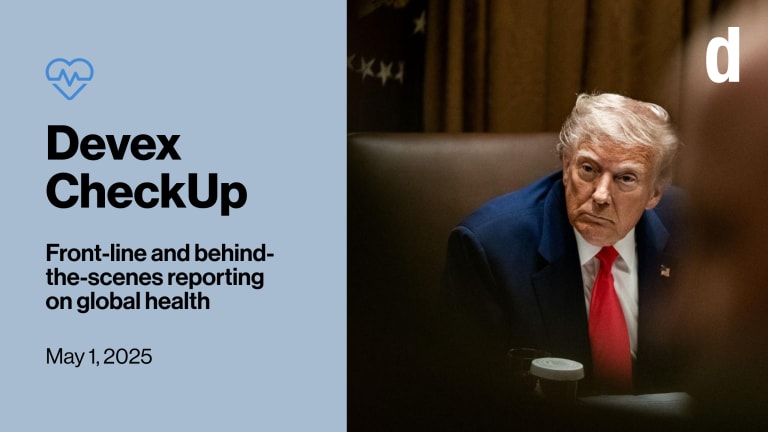
Three weeks after Merck, Pfizer has also inked a deal with the Medicines Patent Pool to expand production and access to its candidate COVID-19 antiviral treatment, a combination of the company’s experimental pill and the HIV drug ritonavir to be sold under the brand name Paxlovid. It was able to reduce a patient’s risk of hospitalization or death by 89% in a phase 2/3 trial, according to the company’s press release, compared to a 50% reduction reported by Merck's molnupiravir. As for the actual data that is not from a press release … there’s nothing yet.
But the Pfizer deal also shares some of its predecessor’s limitations. The deal limits the treatment’s generic production and purchase to 95 countries, similarly leaving out several upper-middle-income countries such as Brazil, Argentina, and Peru, and thus raising the same issue access advocates have with Merck’s agreement with MPP.
• Some coverage differences: Pfizer has included Armenia, Georgia, Jordan, Kosovo, Kyrgyzstan, and Ukraine — which are not in the Merck-MPP agreement. But it has left out Cuba, Dominica, Fiji, Grenada, Guyana, Iraq, Jamaica, Libya, Maldives, Marshall Islands, Mauritius, Paraguay, St. Lucia, St. Vincent and the Grenadines, Seychelles, Suriname, and Tuvalu — countries Merck covered.
This is a preview of Devex CheckUp
Sign up to this newsletter for exclusive global health news and insider insights, in your inbox every Thursday.
• Countries excluded from the latest licensing agreement can produce generics of the drugs as there’s no patent yet for Pfizer’s pill, and ritonavir is off-patent, according to Médecins Sans Frontières. But Pfizer “is likely to start pursuing patents soon,” MSF spokesperson Brienne Prusak tells Jenny.
• Another caveat: “Since the compound is new — and clinical data on its efficacy and safety only became available very recently — it will still take some time for generic producers to develop and prepare,” Prusak says.
Trash decision
One person’s trash is another person’s … access to health care. A 2019 survey found that only about one-third of Tanzania’s population had health insurance, but a majority, including many informal workers, paid out of pocket for health expenses. Tanzanian-based social enterprise EcoAct collects about 30 kilograms (66 lbs.) of plastic per family per month from those living in informal settlements in Dar es Salaam — and in exchange, it pays their health insurance premiums, about $24 a year.
Read: Trading trash for health insurance in Tanzania
What’s new
The Global Fund to Fight AIDS, Tuberculosis and Malaria’s newly approved strategy mainly reemphasizes the work the organization already does. But Harley Feldbaum, the fund’s head of strategy and policy, tells Jenny that the latest strategy includes some new additions, such as an “evolving objective” on pandemic preparedness and response, and addressing the threat of climate change on health.
Devex Pro: The Global Fund’s latest strategy
+ A Devex Pro subscription lets you access exclusive content, deeper analysis of the development sector, digital events, and the world’s largest global development job board. Sign up now and start your 15-day free trial.
Where in the world?

These 60 countries are projected to achieve a 30% reduction in tobacco use by 2025 compared to 2010, according to WHO’s latest report on trends in tobacco use prevalence. They represent 41% of the world’s population.
Even outside those countries, tobacco use is on the decline — rates are down in 150 countries. And where data is available, the report shows there are only six countries where tobacco use is rising: Congo, Egypt, Jordan, Lebanon, Moldova, and Oman.
ICYMI: COP 9 concluded with a declaration emphasizing the need to “remain aware of the inherent and irreconcilable conflicts between the tobacco industry's interests and public health policies.”
Package deal
When a pregnant woman walks into a health clinic, it's likely she will be, or has already been, tested for HIV, because it's part of routine care in many countries. But syphilis? Testing for it is rare — yet its consequences are deadly. Each year, more than 210,000 stillbirths and newborn deaths are linked to congenital syphilis, which is preventable. A new partnership aims to reduce these deaths by making a rapid test that checks for both HIV and syphilis available to over 100 low- and middle-income countries.
Read: Cheaper HIV/syphilis combo tests aim to reduce newborn deaths
Kenya’s private sector problem
Can the private sector deliver quality health services to Kenyans? According to a new report, the answer is emphatically no. Kenyan human rights organization Hakijamii and New York University’s Center for Human Rights and Global Justice say the government has funneled money into the private sector, with support from groups such as the Gates Foundation and World Bank, leaving public systems ill-equipped to serve the population.
While good health care is available in the private sector, many cannot afford it, leaving them at the mercy of poor-quality private actors, which ricochet many into debt.
Read: De-facto privatization of health in Kenya limits access, says report
What we’re reading
The United Kingdom wasted 600,000 doses of the AstraZeneca vaccine by allowing them to expire in August. [Independent]
The United States plans to invest in domestic manufacturing to boost COVID-19 vaccine supply. [Devex]
Moderna signs an agreement enabling European countries to donate over 70 million doses of its COVID-19 vaccine to COVAX. [Reuters]






